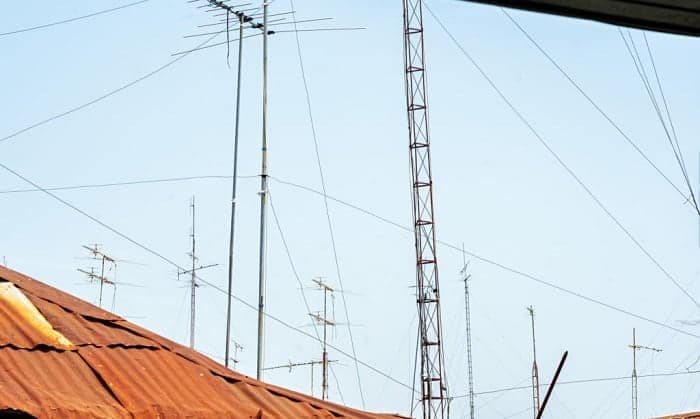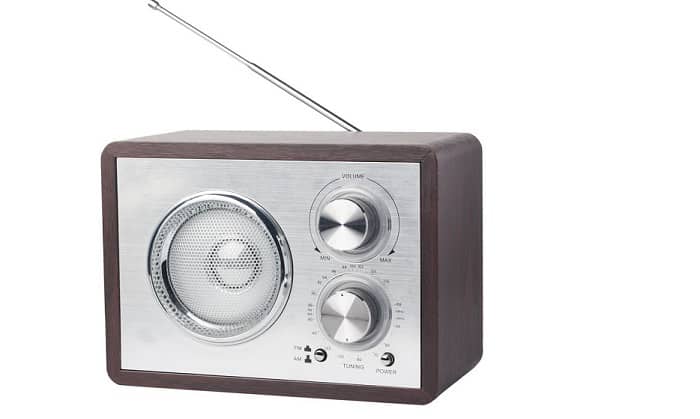Despite the explosive growth of Internet radio use, FM radios have not been replaced completely. However, the introduction of modern devices has made FM radio reception distracted so quickly that it creates annoying sounds or even signal drops. These circumstances are unavoidable, and if you live in a metal building, it can be even worse.
One of the most common concerns of people is “How to improve radio reception in a metal building?”. If it is also your question, do not worry because this article will help you better understand this phenomenon and fix it.
Table of Contents
Things to Prepare Before Boosting Radio Signal in a Building
Several steps to prepare before improving the poor signal problems:
Space: Antenna is a susceptible device, and its effectiveness depends much on the environment. Make a place for it in your house, near the connected radio, and keep other objects far from it.
Equip additional devices:
- Use a signal amplifier (also known as a signal booster): Put a signal amplifier and connect it to the antenna’s cable. You can choose either a dedicated FM or a TV signal booster based on your interest because both work well.
- Use a distribution amplifier: If your family is keen on the radio that there are several radios in your house, you must use a distribution amplifier.
- Use a rotor: A rotor may cost you about $200 to $300 or even more, making this choice quite expensive. Yet, a high price comes with value. The addition of a rotor may immediately make your work done. Especially when you installed an outdoor antenna, this can be the optimal solution.
- Get a signal attenuator: Living so near the radio transmitter that the signal is so strong also annoys you. If it is the case, a signal attenuator is not a bad idea. The only problem when using it is determining how much reduction you need. Consult your sellers when purchasing it to utilize the information.
Improve Radio Reception in a Metal Building: 9 Steps to Remember
Having equipped necessary knowledge about radio reception, you are now ready to learn how to improve radio reception in a metal building. Follow the nine steps below to get it done.
Step 1: Relocate the radio
Remember that metal material distracts radio signals, but concrete one does not. Thus, you should seek concrete parts in your building to simply solve the problem. One way you can do this is by carrying the radio with you while moving. You will realize that sometimes the signal is better and sometimes worse. Simply put your radio in place; it illustrates the most precise and most stable signal.
Step 2: Eliminate obstacles
As mentioned before, intermittent and surrounding obstacles contribute generously to the ineffectiveness of your radio reception. The good thing is some of them are removable. List all these things on paper and consider removing them from the radiolocation. Paying attention to large items would work.
Step 3: Check and replace antenna connections
You will be surprised to hear that many people said they could fix this problem by simply testing the connection point between the antenna and head unit. Commonly, the connection point is loose and oxidized after a long time of use. Especially if you have an outdoor antenna, cables can be easily damaged. Hence, carefully checking and accurately adjusting it would bring remarkable effect.
However, items always have limited time use, and so does your antenna. Long time used antennas will lose most of their ability to function well. Consider replacing it with a more modern and functional one.
Step 4: Run a frequency scan
If you install a home theater receiver or other related devices, you can boost radio signal in a building by running a frequency scan. When the scan process occurs, it also allows you to mark your favorite stations via presets.
Step 5: Switch from stereo to mono
Both stereo and mono signals have their pros and cons. Using stereo signals allows you to experience better sounds, while mono is a more stable signal. Hence, switching from stereo to mono will be an effective method if you live near a transmission station.
Step 6: Move your antenna
Moving the antenna depends on the placement of the antenna:
- Indoor antenna: Put it near the window as high as possible. Moreover, pay attention to the length of the cable because too short a cord prevents it from functioning correctly, while too long weakens the signal.
- Outdoor antenna: Also put it near the window but pay more attention to an unobstructed view in the direction of the station transmitter.
Step 7: Switch from inhouse to an outdoor antenna
Doing this will enhance FM reception. However, this option is quite costly. Contrary to the low price of small indoor antennas (typically around $10), the investment in outdoor ones is quite considerable. You can spend up to over one hundred dollars to achieve it.
Step 8: Make a metal building antenna
Although this method is not scientifically proven, many have stated that they can improve the radio signals by using a metal building as an antenna. This method may or may not work. If you have a metal roof, this may bring you promising results.
Step 9: Contact FM services
FM radio stations also provide cable services to their customers. Therefore, in the case you have tried all the above steps but still can not boost the radio signal in a building, why don’t you ask for advice from experts? Then, your problem will be immediately found and solved.
Causes of Poor Radio Reception in a Metal Building
Various direct and indirect reasons cause poor signal when you get radio reception in a metal building. But, according to experts, common factors would be:
- Unideal distance: Surely, when choosing your living place, no one considers the factor of the distance between it and a station transmitter. Hence, far or near distance is a random factor. If you are far from a station transmitter, obviously, your signal will be affected. But in the case you are lucky enough, close distance can overpower your radio.
- Type of antenna: Various types of antenna are supplied in the market with different functions and disadvantages. A directional antenna prevents you from receiving signals from multiple transmitter locations, while a multi-directional one leads to signal drops regularly.
- Shared antenna: Another problem related to the antenna would come from the way you use it. You may connect your antenna with two or more radios for saving. Nevertheless, doing this will prevent your radio from having the best signal.
- Obstacles from surroundings: This is a typical case that you should be aware of. The appearance of mountains, hills, rivers in your living environment may create poor radio reception. Besides, even the common construction materials of your building, such as concrete, aluminum siding, foil-lined ducts, solar panels, and so on, also reduce signal effectiveness.
- Intermittent obstacles: The widespread use of electrical equipment, cell towers, and airplanes affect radio reception. You may wonder why. Simply speaking, these kinds of items operate based on transmitting signals. Therefore, like traffic jams, too many signals in an area will hold back the speed of each other.
- FM tunnel sensitivity: This feature determines whether your radio reception is good or not.
The factors listed above do not include all factors that cause poor radio reception in a metal building. In the next part, you can find some solutions to deal with your specific situation.
Wrapping Up
In a nutshell, various matters related to poor radio reception, especially in metal buildings, can create barriers when using your favorite information devices. Hopefully, this article can help you answer the beginning question: “How to improve radio reception in a metal building” and above all, acquire some valuable tips applying to your specific situation.

After four years working as a radio mechanic, I know that everything about radio communication is not breezy, even though it greatly benefits us. That is why I set up a website sharing my skills and guides to help non-professional users use their radio headsets, set up their antennas or choose the right products, etc.




